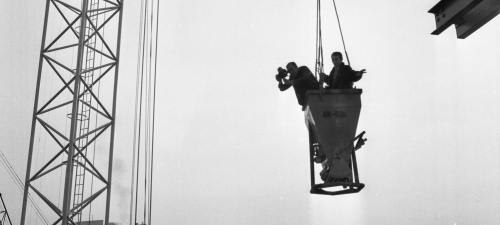Reporter László Murányi und MTV-Kameramann auf der Baustelle des Donautal-Kraftwerks. Foto: FORTEPAN / Urbán Tamás, CC BY-SA 3.0, via Wikimedia Commons.
Research Projects


Reporter László Murányi und MTV-Kameramann auf der Baustelle des Donautal-Kraftwerks. Foto: FORTEPAN / Urbán Tamás, CC BY-SA 3.0, via Wikimedia Commons.
